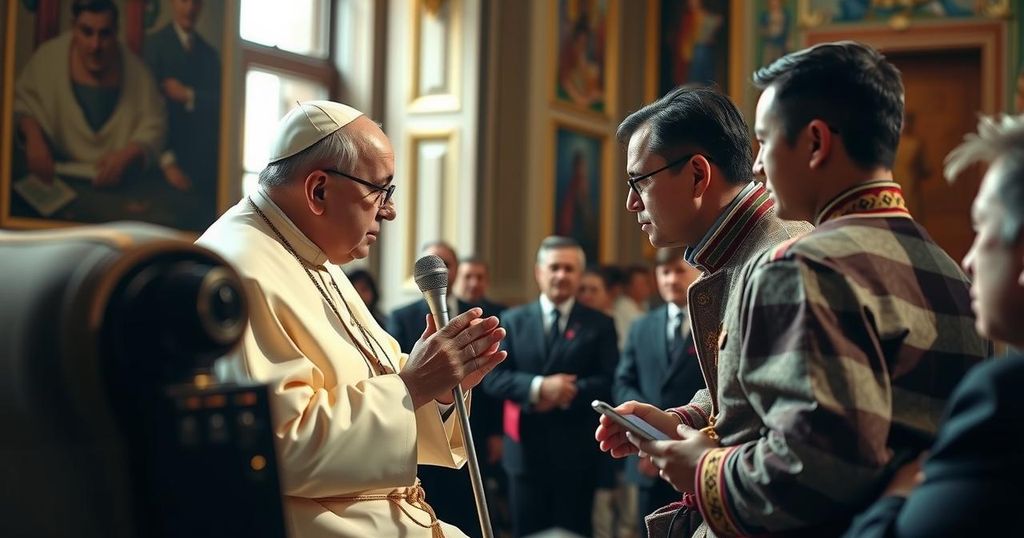Pope Francis commemorated the 1984 Treaty of Peace and Friendship between Chile and Argentina, which resolved border disputes and promoted regional stability. He emphasized dialogue as a foundation for peace, reflecting on the pivotal role of Pope St. John Paul II in mediation. His address addressed the ongoing global conflicts, urging nations to prioritize relationships over armaments and advocating for collaborative peace efforts.
On November 29, 1984, Chile and Argentina officially ratified the Treaty of Peace and Friendship, successfully addressing a long-standing border conflict concerning the Beagle Channel that had nearly escalated into war in 1978. This significant treaty, which fostered enhanced relations within South America, was brokered with the assistance of the Holy See, prominently featuring Pope St. John Paul II as a mediator.
A recent commemorative event held at the Vatican, organized by the Embassies of Chile and Argentina, marked the treaty’s anniversary, attended by Pope Francis, Cardinals, and various members of the Diplomatic Corps. During the ceremony, Pope Francis delivered a passionate appeal advocating for global peace and dialogue, highlighting the importance of the steadfast commitment demonstrated by both nations during their protracted negotiations. He posited that the outcomes of their deliberations epitomize a model to be emulated in today’s tumultuous climate.
In his reflections on peace and friendship—central tenets of the treaty—the Pope emphasized their relevance in addressing contemporary global conflicts, stressing the necessity of resolving disputes through dialogue, while categorically renouncing any recourse to force. He expressed concern regarding ongoing injustices, violence, and the climate crisis, urging societies to prioritize human relationships and spiritual growth over materialism and competition.
Additionally, Pope Francis expressed gratitude towards God for thwarting the war between Chile and Argentina, while echoing sentiments from a recent joint declaration by the Catholic Bishops of both countries. He called for a continuation of the spirit of collaboration and peaceful coexistence among nations, aiming to alleviate the multifaceted crises affecting vulnerable populations worldwide.
The Pope lamented the contradiction of nations advocating for peace while simultaneously investing in armaments, condemning this hypocrisy as antithetical to the principles of fraternity and peace. He concluded by invoking divine blessings for both nations and for all countries engaged in the pursuit of peace, with a heartfelt invocation to Mary, Queen of Peace.
The Treaty of Peace and Friendship, signed on November 29, 1984, was a significant diplomatic achievement aimed at resolving a contentious border dispute between Chile and Argentina over the Beagle Channel. This treaty followed a period of heightened tensions that had nearly resulted in armed conflict in 1978. Mediated by Pope St. John Paul II, the treaty played a pivotal role in stabilizing relations between the two countries and served as a catalyst for increasing peaceful dialogue and cooperation within the South American region.
Pope Francis’s appeal for peace, echoing the success of the 1984 Treaty of Peace and Friendship, stands as a testament to the efficacy of dialogue in resolving disputes. His emphasis on the need for patient negotiation and commitment to peaceful solutions highlights the continued relevance of this diplomatic model in addressing the conflicts of today. The Pope’s remarks also urge a conscious reflection on the morality of nations prioritizing arms investments over peace initiatives, advocating for a united approach toward resolving global crises.
Original Source: www.vaticannews.va







